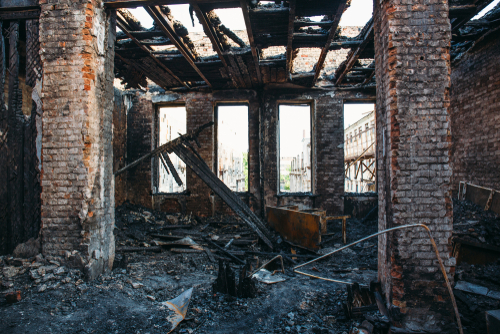Iowa Supreme Court Rejects Restaurant’s Allegations of Bad Faith and Breach of Contract After Appraisal

The Iowa Supreme Court recently reversed the appellate court’s denial of an insurer’s motion for a directed verdict, finding that United Fire did not breach the insurance policy and did not commit bad faith during a property appraisal. Luigi’s, Inc. v. United Fire and Cas. Co., No. 19-1669, — N.W.2d —-, 2021 WL 1932711 (Iowa May 14, 2021).
Factual Background:

Luigi’s restaurant in Oelwein, Iowa, burned down, resulting in a total loss. Luigi’s was insured under a policy with a limit of insurance of $550,000. The policy provided two methods for determining the actual cash value (ACV) of the loss: First, if there is a regular market for similar properties, the property’s ACV is its market value (the “Market Approach”). If there is no regular market for similar properties, then ACV is the cost of replacing the building with like materials (the “Cost Approach”).
United Fire retained Rally Appraisal to determine the ACV of the loss. Rally used the Market Approach and compared the restaurant to four similar properties. Rally concluded that the ACV of the building (not including the contents therein) was $242,000. United Fire issued payment based on this conclusion.
Luigi’s rejected the valuation and invoked its right to appraisal. Using the Cost Approach, Luigi’s’ appraiser determined that the ACV was $1,030,000, including $900,000 for the building and $123,000 for contents. On June 22, the appraisal panel unanimously agreed to an award of $502,000, including $380,000 for the building and $122,000 for contents.
United Fire reviewed the award and advised that it already paid the contents claim under the separate business personal property coverage. United Fire’s appraiser attempted to withdraw his signature from the appraisal award, claiming that he was misled regarding coverage and was coerced into signing the award. Luigi’s refused to reconsider the award, demanding the full $502,000 award. United Fire then paid the full award on July 12 within the 30 day period provided by the policy.
Luigi’s subsequently sued United Fire for breach of contract in connection with the appraisal process and bad faith. The jury returned a verdict for Luigi’s, awarding contractual damages of $48,000 (the difference between the appraisal and the policy limit), bad faith damages of $42,000, and $30,000 in punitive damages.
On appeal, the Iowa Supreme Court determined that United Fire was entitled to a directed verdict.
No Breach of Contract:
Luigi’s argued that United Fire breached the policy by making an initial “lowball” offer, forcing Luigi’s to invoke appraisal and spend approximately $41,000 on appraisal. Luigi’s’ argument was premised on its belief that it was entitled to recover the policy’s full $550,000 limit in the event of a total loss. The Court found that Luigi’s was not necessarily entitled to the policy’s full limits, explaining that the policy would not provide two methods of determining ACV if the policy already mandated a building value of $550,000.
Luigi’s also argued that United Fire breached the policy by failing to appoint “a competent, experienced appraiser” because its appraiser relied on the Market Approach, not the Cost Approach. The Court rejected this argument, noting that United Fire’s appraiser was a certified real estate appraiser who had participated in 40-50 restaurant appraisals, and that Luigi’s’ own appraiser acknowledged that the building had an ascertainable market value, thus making the Market Approach tenable.
United Fire’s Actions Did Not Amount to Bad Faith:
Under Iowa law, an insurer commits bad-faith claim denial if it (1) did not have a reasonable basis for denying a claim, and (2) the insurer knew or had reason to know that it lacked a reasonable basis for denial.
Luigi’s argued that United Fire’s reliance on Rally’s appraisal results constituted bad-faith denial. The Court disagreed, explaining that “United Fire had no obligation to disregard the opinion of its own expert in favor of the insured’s expert’s opinion. Id. at 10.
Luigi’s further argued that United Fire’s attempts to rescind the appraisal award before payment were bad faith. However, the Court held that Luigi’s’ claim for bad-faith delay of insurance benefits failed because United Fire timely paid the appraisal award in accordance with the policy.
Finally, Luigi’s argued that two separate communications from Rally provided grounds for a bad-faith claim. The court held that a letter and an email regarding the disagreement of the appraisal’s scope and the potential of litigation were not bad faith because the question of whether the appraisal would “include consideration of furniture, fixtures, and equipment was open to dispute and thus fairly debatable.” Id. at 13.
Takeaways:
The Court’s ruling contains several useful takeaways for insurers and insureds to consider when invoking appraisal. Notably, the court provided analysis regarding how appraisers’ credentials can establish that they are “competent” and “experienced.” The court also clarified that parties may question an agreed appraisal award when there is a legitimate debate as to the intended scope of the appraisal.